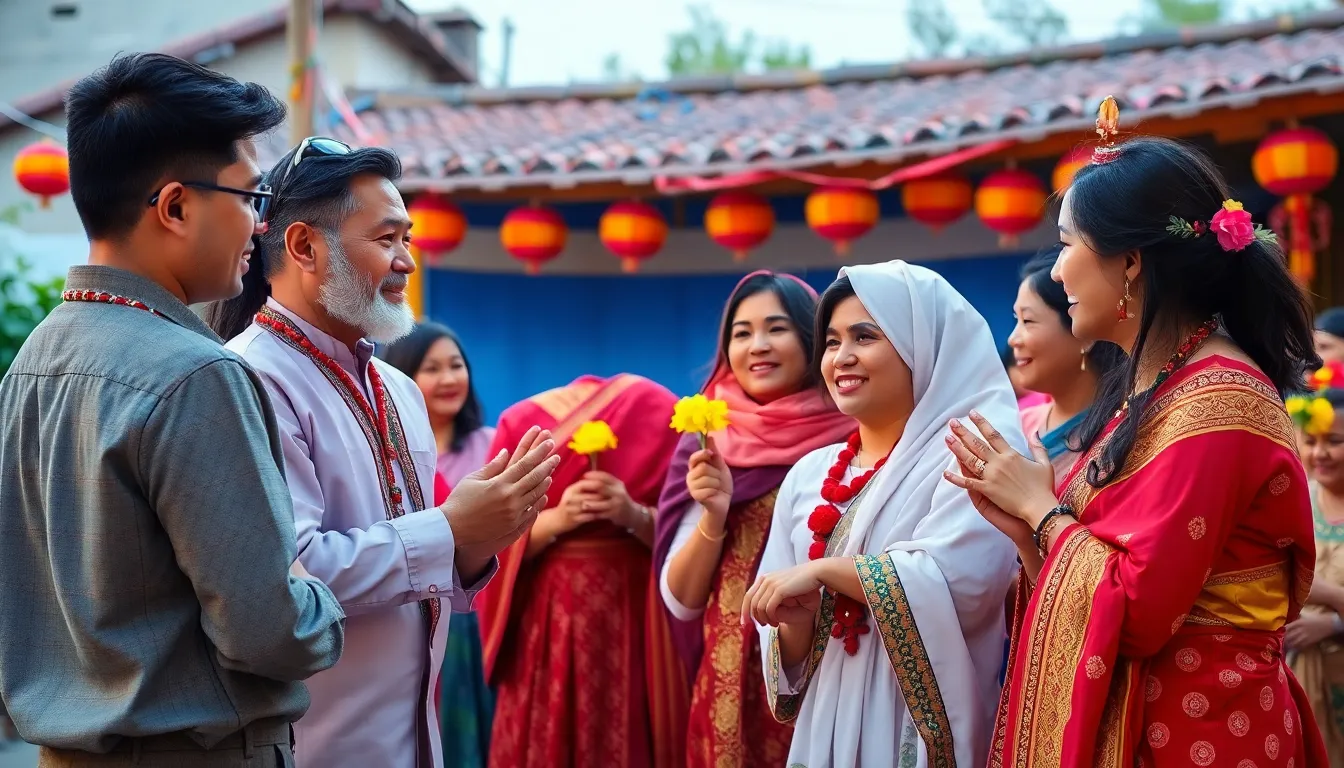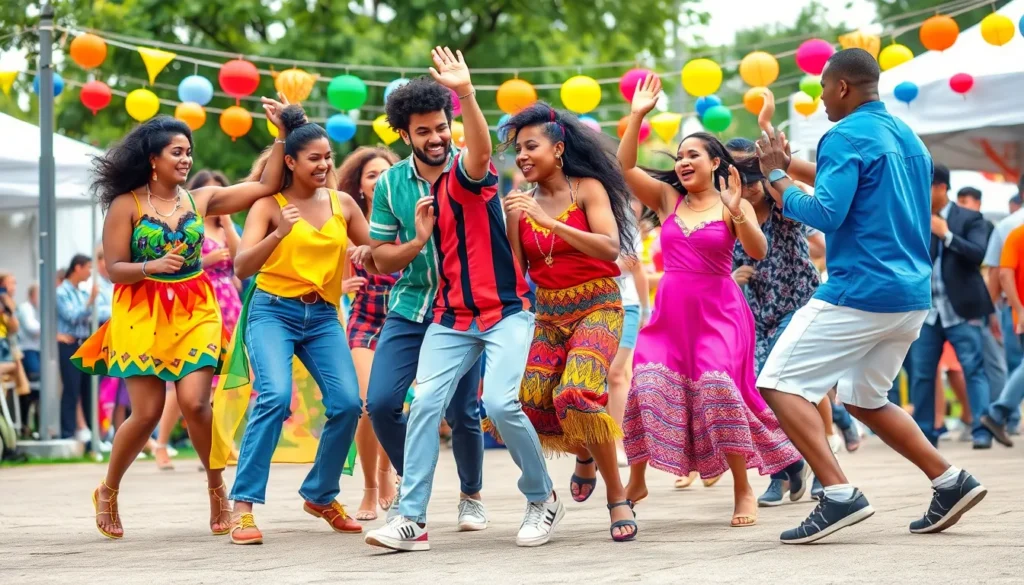Table of Contents
ToggleCultural traits are the quirky little fingerprints of societies that shape how people think, behave, and connect with one another. Imagine walking into a room filled with people who share a love for spicy food, dance-offs, or even a peculiar obsession with collecting rubber ducks. These traits reveal the essence of a culture and make it uniquely captivating.
Understanding Cultural Traits
Cultural traits represent the unique characteristics that shape societies and their members. These traits influence thoughts, behaviors, and interactions within a community.
Characteristics of Cultural Traits
Cultural traits include shared customs, values, and beliefs that distinguish one culture from another. They manifest in various forms, such as language, religion, and traditions. Influence extends to daily activities, shaping social norms and expectations. Observable practices, like specific culinary styles or holiday celebrations, highlight these characteristics. Together, they foster a sense of identity among group members.
Types of Cultural Traits
Various types of cultural traits exist, each contributing to cultural identity. Material traits involve tangible objects such as clothing or tools. Normative traits encompass unwritten rules about behavior and etiquette. Symbolic traits represent deeper meanings, including rituals and art forms. Each type plays a crucial role in forming a cohesive cultural framework that shapes individual and collective experiences.
Importance of Cultural Trait Definition

Cultural traits significantly shape individual identities and societal structures. Understanding these traits reveals much about groups and their unique characteristics.
Influence on Identity
Cultural traits play a central role in shaping individual identity. They provide a framework for self-expression and community belonging. Shared customs like holidays or traditional dress foster a sense of unity among group members. People relate to others through these shared experiences, making identity formation dependent on cultural context. Individuals often find pride in their unique traits, allowing them to connect with others who share similar backgrounds. Embracing these traits solidifies personal and collective identities, influencing perceptions and interactions with others.
Impact on Society
Cultural traits also exert a powerful influence on societal norms and behaviors. They shape social interactions, guiding how people communicate and engage with one another. Normative traits establish unwritten rules, dictating acceptable behaviors and fostering harmony within communities. Each trait contributes to the social fabric, influencing everything from politics to education. Furthermore, cultural traits promote diversity by highlighting different perspectives and practices. Societies thrive when they embrace a variety of traits, leading to creativity and innovation.
Examples of Cultural Traits
Cultural traits manifest in various forms, each contributing to the identity of a culture. Observing different examples offers insights into how these traits shape societies.
Material Cultural Traits
Material cultural traits consist of tangible objects and artifacts. Items like traditional clothing, food, and tools illustrate a culture’s identity. For instance, a Japanese kimono represents heritage, while Italian pasta reflects culinary traditions. Architecture also falls under material traits; the Taj Mahal showcases India’s history and artistry. These artifacts provide a visual representation of cultural values and social practices, highlighting the uniqueness of each society.
Non-Material Cultural Traits
Non-material cultural traits encompass the beliefs, values, and norms within a culture. Shared customs such as greetings and courtship practices govern social interactions. For example, the practice of tipping in the United States indicates appreciation for service, while communal celebrations like Diwali strengthen community bonds in India. Language plays a vital role; idioms convey cultural nuances that shape worldviews. These non-material traits foster a sense of belonging, guiding individual behavior and communal relationships.
How Cultural Traits Evolve
Cultural traits evolve through various influences and changes over time. These shifts often reflect broader societal developments, technology, and interactions among different cultures.
Factors Influencing Change
Change in cultural traits frequently occurs due to demographic shifts, social movements, and technological advancements. Demographic shifts introduce new perspectives and practices, modifying existing cultural norms. Social movements can reframe values, promoting inclusion and diversity that alters collective identity. Technology offers new communication platforms, facilitating cultural exchange and blending styles. Migration contributes to this evolution, as individuals bring distinct traits into new environments, enriching the cultural fabric. Over time, these factors intertwine, leading to the transformation of traditional norms into new cultural expressions.
The Role of Globalization
Globalization plays a significant role in the evolution of cultural traits by enabling increased interaction between societies. As nations become interconnected through trade, travel, and the internet, cultural ideas spread rapidly across borders. Exposure to diverse cultures fosters a mutual exchange, leading to hybridization of traditions. Shared experiences, such as global events or media, promote common cultural phenomena, making certain traits universal. However, this interaction can also create tensions, with local traits challenging or resisting outside influences. Overall, globalization significantly reshapes cultural landscapes, influencing both individual and collective identities.
Cultural traits serve as the backbone of societies, influencing how individuals connect and express themselves. They foster a sense of belonging and identity while shaping social norms that guide interactions. As cultures evolve, these traits adapt and transform, reflecting the dynamic nature of human experience. Embracing cultural diversity enriches communities and promotes innovation, allowing for a vibrant exchange of ideas. Understanding cultural traits is essential for navigating today’s interconnected world, as they reveal the complexities of identity and social cohesion.







